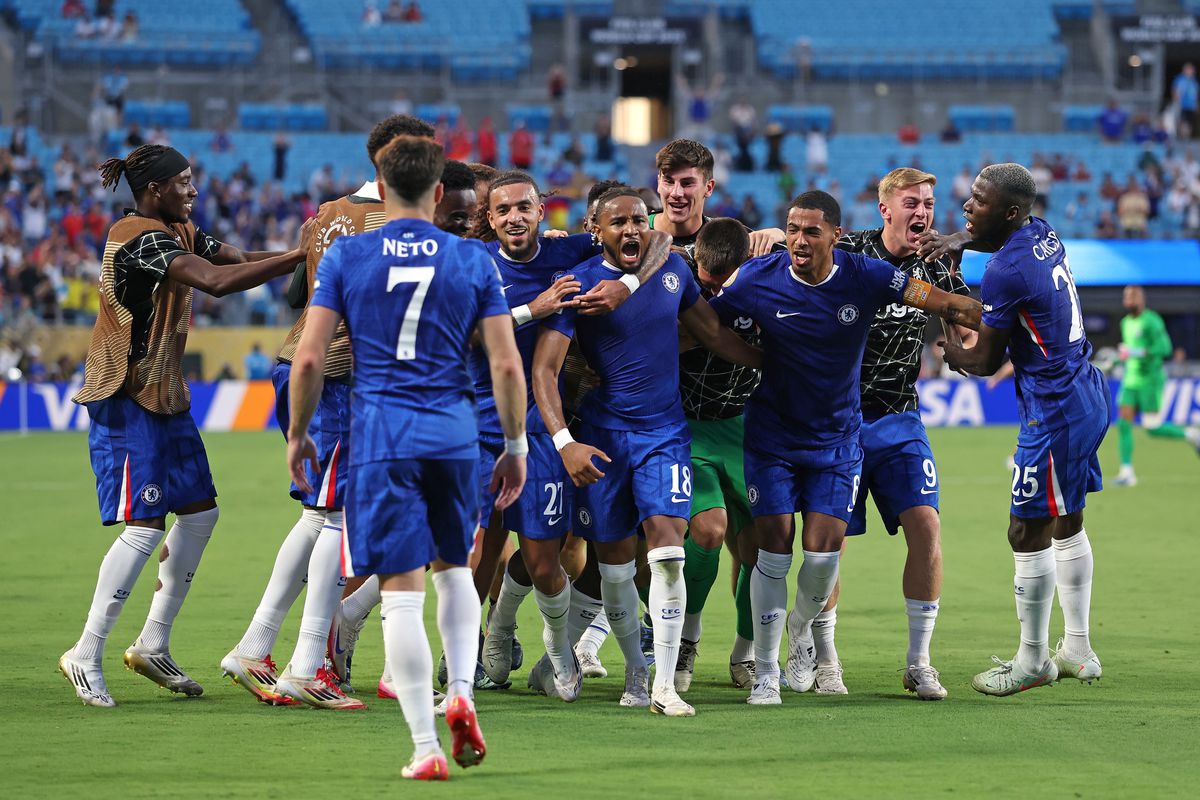Opening Drama Under the Storm Clouds
Last night in Charlotte, North Carolina, Chelsea faced Benfica in a scintillating Round‑of‑16 clash at the FIFA Club World Cup. Reece James delivered a beautifully curled free-kick in the 64th minute to break the deadlock. But lightning in the area halted the match just four minutes from full time, triggering a near two-hour interruption. The break shifted momentum: upon resumption, Benfica were controversially awarded a penalty after a debated handball call on Malo Gusto. Ángel Di María coolly slotted home, sending the match into extra time.

Refereeing Decisions Fuel Controversy
The weather delay wasn’t the only pivotal moment. The penalty against Chelsea after the storm dividing call sparked outrage. Many observers labeled the decision “soft,” contending that the handball ruling did not align with typical FIFA standards. Then came Benfica’s red card: Gianluca Prestianni received a second yellow early in extra time, putting Chelsea up to 11v10—a critical turning point. The referee’s handling of both the penalty and the red card became a hot talking point post-match. Despite pushback from Benfica’s staff, Chelsea took advantage ruthlessly.
Extra-Time Mayhem: Chelsea Strike Fast
With the numbers advantage firmly in their favor, Enzo Maresca’s side pounced in extra time. Christopher Nkunku opened the flurry with a rebound strike in the 108th minute. Six minutes later, Pedro Neto struck with clinical composure, and Kiernan Dewsbury-Hall sealed the 4‑1 victory in the 117th minute. Resilience and fitness shone through. Chelsea weathered the storm—literally and metaphorically—and flipped a game that looked primed for heartbreak. As Fox Sports put it: “Nkunku’s extra‑time goal sparks Chelsea… after lightning delayed the match… nearly five hours to complete”.
Tactical Stack: How Chelsea Navigated Chaos
Manager Enzo Maresca sealed his reputation with composure under extreme conditions. He remarked, “It’s not the same game” post-delay, laying bare the challenges of a match split by nearly two hours . His midfield trio—Moisés Caicedo, Romeo Lavia, and Enzo Fernández—anchored the team, neutralizing Di María and Benfica’s veteran threats . Reece James’ set-piece sharpness and clinical finishing typified Maresca’s game plan—structured, disciplined, and opportunistic.
Turning to substitutions, the introduction of Nkunku and Dewsbury-Hall provided fresh legs and attacking edge. Their combined energy was critical in exploiting the weakened, fatigued ten-man Benfica.
What This Means for Chelsea & Benfica
Chelsea’s victory sets up a quarter-final showdown with Palmeiras in Philadelphia. It’s a major statement—showing their ability to manage external chaos and win on mental strength. For Benfica, it’s a bitter exit. Their penalty rescue and red card drama were overshadowed by match control questions. Analysts noted their goalkeeper inspired early, but the heavy extra-time collapse exposed gaps in squad depth.
Final Thoughts & Looking Ahead
Chelsea’s 4‑1 win over Benfica wasn’t just a victory—it was a testament to character, adaptability, and tactical clarity under stressful conditions. They handled controversial refereeing decisions, the weather stoppage, and a swinging match momentum with professionalism. As they prepare for Palmeiras, this resilience could define their tournament journey.
Meanwhile, Maresca’s concerns about hosting Club World Cup matches amid extreme weather continue to echo. With more storms forecast, future matches may face similar drama—a new challenge for scheduling and refereeing protocols.

